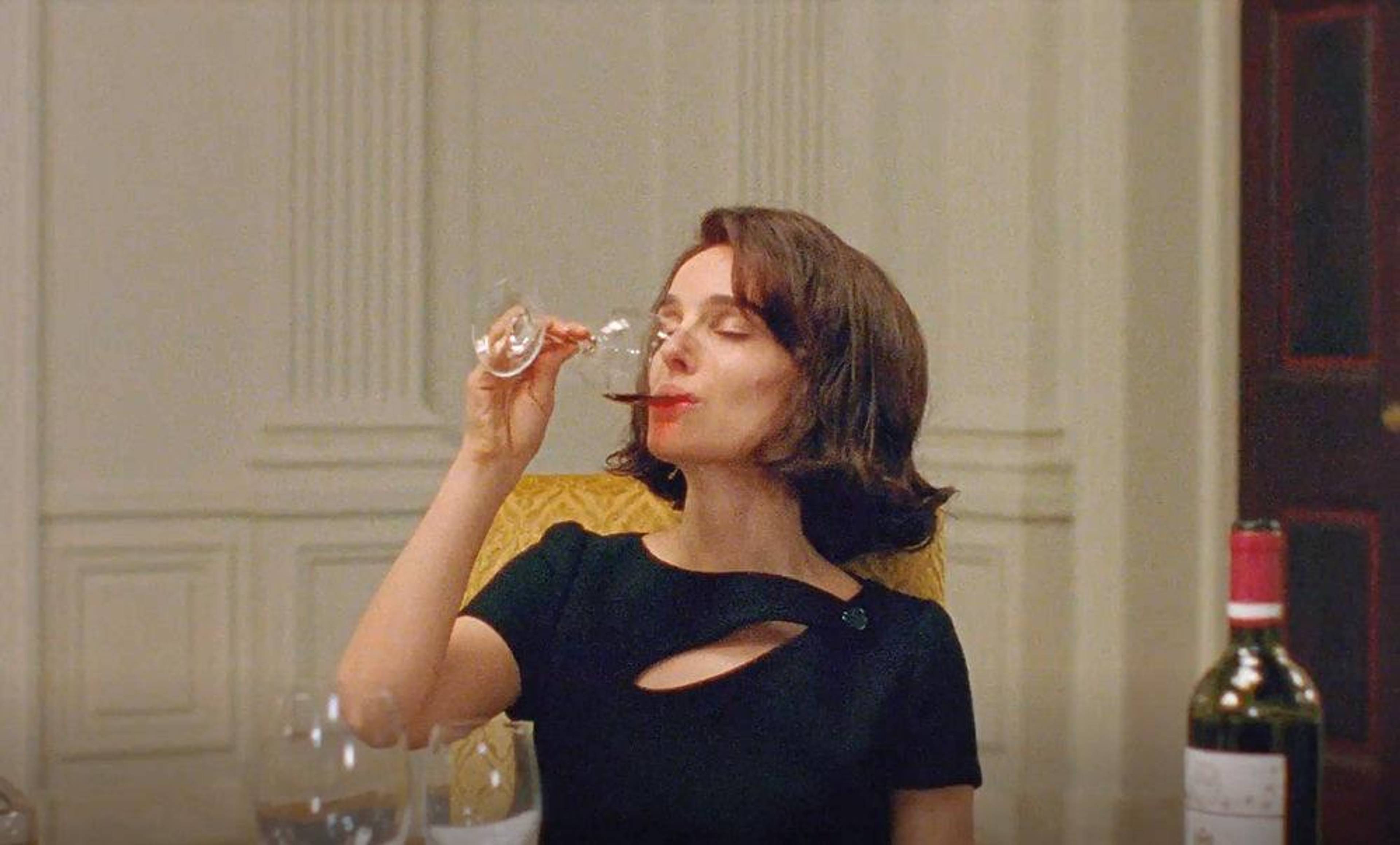The other day, a French person asked me what Americans call this time of year instead of back-to-school, when we’re referring to adults. I don’t know, I said. I think we still call it back-to-school, but in a semi-facetious way: pre-fall is still about shopping, as every season is in America, but it’s also about putting extra pressures on our purchases. As a residual effect of the back-to-school shopping agenda, we expect our new things to steer us toward higher intellect and productivity. Our outfits will help us to become the aspirations we identified while on vacation, which will take us closer to some final form of the year. Summer bodies happen in winter, but back-to-school (and Halloween) bodies happen in summer. People have told me that they gained 30, 40, and 80 pounds in the past couple years, surprised by their own pure desires, sans certain inhibiting factors.
The news that Melania Trump allegedly told her friends that she has “no interest” in a second stint as First Lady comes alongside reviews for Spencer (2021), a movie starring Kristen Stewart as Princess Diana directed by Pablo Larraín, who also directed Jackie (2016), starring Natalie Portman as Jacqueline Kennedy during the days following her husband’s assassination. I can see someone like Larraín directing a Melania movie one day, forming a trilogy on the pain of a very particular role in society. It is dangerous to dream big, these stories suggest, when one’s dreams might come true and spin out of control. Spencer and Jackie deal with small windows of time in expansive, lonely rooms – rooms like the ones Melania always seems to inhabit, in the imagery we see of her. These anti-biopic narratives zoom in on pivotal moments in the lives of ultra-magnetic, soft-spoken figures. They are clearly metaphors for the loneliness of marriage, especially marriage into power and visibility. It’s like Marilyn Monroe once jotted down on some hotel stationery: “I am alone I am always alone no matter what.”
if everyone in my periphery is talking about converting to Catholicism, eating tinned fish, and drinking whole milk again, then wasn’t the overarching summer look about collapsed time?
These stories and their protagonists remind me that fashion is melancholic, or at least it used to be, based on rerouting feelings of emptiness to consumerism. Shopping, like taking drugs, is only temporary alleviation, intertwined with notions of self-expression and mind expansion: understanding a concept, learning a language, fitting in, feeling creative, and standing out. Obsessing over updating one’s clothing and the interior design of her surroundings used to not be so linked with personal branding; instead, it represented self-interest, inner turmoil, reckless abandon, having a room of one’s own.
To announce a new remix album last week, Lady Gaga posted a meme of popular meme characters (Big Chungus, Crying Wojak, Gary the Snail, etc.) wearing cartoon Chromatica merch and the caption “I BELIEVE IN GOD”. Relatively un-photoshopped is a Minion meme added to the upper left corner, its text, “Do I look like someone who cares what God thinks?” – originally a quote from the movie Hellraiser (1987) – left intact. Its presence, alongside graphics depicting a fanged portal, reminds us that Gaga has always cared what God thinks, while notifying us for the first time that she is aware of the trendiness of Christianity, which is to say the recent popularity among the avant-garde to rely on divine reason and attribute today’s hellish qualities to the actual demons of Hell.
Still from Jackie, 2016, 100 min.
And really, if everyone in my periphery is talking about converting to Catholicism, eating tinned fish, and drinking whole milk again, then wasn’t the overarching summer look about collapsed time? By that I mean taking literature at face value instead of translating it to fit an arbitrary era, or, maybe, doing the actual thing instead of making it fashion. Not exactly going back to basics, like those distracting articles about embracing the Lindy Effect or rejecting so-called classic Parisienne style, but seeing things as they are (assuming this is possible) while seeking some ultimate truth. If the titles at Cannes announced the trickle-down of our bucolic obsession with barnyard animal themes, the ones at the 2021 Venice Film Festival give away some reignited interest in trad families – The Lost Daughter, Parallel Mothers, Scenes From a Marriage – and religiosity – The Catholic School, Hallelujah , They Carry Death, The Hand of God, The Power of the Dog . Which is a stretch, I’m aware (all trend reporting is).
In a new Netflix series, The Chair , a scandalised literature professor monologues about the power of storytelling, his plea to the board to let him keep a tenured position despite angry mobs calling for his retirement. What he says is hard to follow because it is almost meaningless, and also because the character, a still-popular novelist, doesn’t seem particularly invested in the words of other writers, only in sentimentalising his profession: “To be an English teacher, you have to fall in love with stories, with literature, and what you’re doing when you do that is you’re always trying to see things from someone else’s point of view; you’re trying to occupy a different space, and when you’re in the middle of a story you’re in a state of possibility as opposed to whatever state of oppressiveness you’re in in real life. The text is kind of a living thing and it’s a dance, an ongoing conversation that you have with it …” In fact, it sounds like the intro to a rambling college essay.
STYLISTIC PLAGIARISM, NON-CONSENSUAL FANFICTIONS, BLIND ITEM WEBSITES, THE ILLEGITIMACY OF BLOGGERS? IT LOOKS LIKE AUGHTS ARE TRULY BACK ...
In another scene, a Chaucer professor who reminds me of my own in undergrad tells a student who is anonymously trolling her online why he should be interested in The Canterbury Tales : “philandering husbands, horny housewives, farting, shitting, public hair … making out with a butthole … so, pucker up”. This speech also doesn’t feel true to its speaker’s character, or at least to my old Chaucer professor, who could laugh at its dirty jokes but never sold The Canterbury Tales so short. Besides, in the hypersensitive atmosphere of The Chair , this outburst would count as inappropriate enough for nearby students to film and post. I wish that this was a good show, and that it compared the devotion to language exhibited by literature professors to that found in contemporary artforms and advertising, memes that suggest critical theory texts and supermodels that go live for book club meetings.
I’ve been hearing about real-life micro-scandals involving writing and reading fiction lately, some of them even involving people who regularly read the Bible, they say. Stylistic plagiarism, non-consensual fanfictions, blind item websites, the illegitimacy of bloggers? It looks like aughts are truly back, not just in terms of fashion but in spirit, as a guiding principle of literary infighting. It reminds me of a time when I got in trouble for posting emails from a stalker on my LiveJournal. The only people who read any of these things are the ones they’re about, was the lesson there. But there is so much to read about every single person in the world now, in new and evolving languages. School is back for students, but we all have homework.
Joe Biden and Lady Gaga, PSA against sexual assault on behalf of Itsonus.org, 2017
In 1980, the French newspaper Libération asked Marguerite Duras to write a chronicle for them over one year. The pieces could be as long or short as she liked, so long as she wrote every day. Duras said a year was far too long and proposed three months instead. “Why three months?” her editor asked. “Three months is one summer long,” she replied. “Agreed, three months, but every day!” the editor insisted. Duras didn’t have anything planned for the summer and almost gave in. But then she suddenly became terrified that she couldn’t plan her days as she wished. So she said: “No, once a week, about whatever I want.” The editor agreed.
Since 2017, Spike has invited Natasha Stagg to do the same: one text a week, of any length, on whatever she likes. A new installment of Out of State was published online every Tuesday for ten weeks – one summer long.




